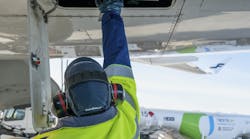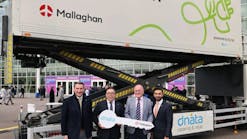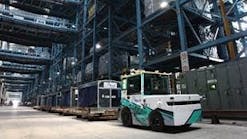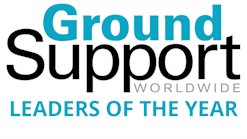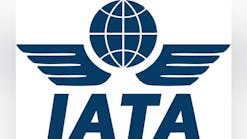Delta Schedules First-Ever Commercial Flight in North America with Camelina-Feedstock SAF
The Minnesota SAF Hub announced today that the first 7,000-gallon shipment of blended SAF made from Minnesota/North Dakota-grown winter camelina arrived at the Minneapolis-St. Paul International Airport fueling facility. Delta Air Lines has designated flight DL 2732 from Minneapolis to New York on Sept. 25, 2024, as the symbolic first flight to be fueled in part by SAF from MSP Airport.
This SAF is made from the winter camelina plant that produces an oil rich seed, which can be crushed, refined and used to produce SAF. It has one of the lower carbon intensity scores of the many feedstocks being used for SAF production today. Also, it is one of the many feedstocks found in Minnesota that can be used to produce SAF, including corn, soybeans, canola, continuous living cover crops, agricultural biomass, woody biomass, hydrogen, waste oils, fats and more.
On the heels of an earlier announcement of major milestones from the Minnesota SAF Hub, this latest development is a prime example of why the Minnesota SAF Hub’s focus on the entire SAF value chain is so important. For the winter camelina SAF-fueled flight to come to fruition, many stakeholders and partners were involved.
- Cargill worked with Minnesota and North Dakota growers last fall to plant 2,000 acres of winter camelina, which was harvested this summer and used as a feedstock for the SAF.
- The camelina was processed at Cargill’s West Fargo crush plant and then sent on to Montana Renewables, where it was refined and blended into SAF.
- The camelina SAF was sold to Delta and transported by Shell Aviation directly to the MSP Airport fueling facility where it will enter the fuel supply.
- Delta will cover the cost of the SAF that would be needed for flight DL 2732 from Minneapolis to New York in recognition of New York Climate Week, displacing conventional jet fuel that is traditionally used.
While this current supply of SAF was produced and blended in Montana, the Minnesota SAF Hub recently announced that a new SAF blending facility at Flint Hills Resources’ Pine Bend facility will blend SAF locally by late 2025. Additionally, a Gevo ethanol plant in Luverne, Minn. is planning to convert its facility to SAF production in the future.
“This initial SAF delivery is another example of how we are making SAF real in Minnesota and showing the world how to do it right,” said Peter Frosch, President and CEO of the GREATER MSP Partnership. “We are highlighting the first SAF flight from MSP International as another major milestone in our push to build a SAF economy anchored in Minnesota. This ambitious effort is moving fast and gaining momentum due to the bold leadership of Minnesota SAF Hub partner organizations. The Minnesota SAF Hub is on track to create thousands of good jobs for Minnesotans by delivering a climate solution the nation and world urgently need.
“The fact that this first flight is fueled with SAF made from camelina, an innovative regenerative agricultural crop grown in Minnesota, is a breakthrough far beyond what we thought possible just six months ago. Our partners at Ecolab and the University of Minnesota deserve special thanks for their contributions, which made this innovation possible. This first batch of camelina SAF is a demonstration of how we plan to decarbonize air travel and improve water quality on agricultural lands while providing new income sources for farmers in and around Minnesota. Minnesota is highlighting an ambitious and viable decarbonization solution for Climate Week attendees.
“Minnesota is an ideal state to lead in the development of the SAF Industry for many reasons, including the nation-leading refundable SAF Tax Credit the State of Minnesota passed in 2023. Minnesota’s rich agricultural landscape gives the Minnesota SAF Hub an opportunity to explore different types of feedstocks and technology, even those in its infancy like winter camelina. In addition, the state’s Environmental Economic Clusters of Opportunity Program supports farmers taking on the risk of growing new crops, which has been helpful in recruiting farmers for Cargill’s pilot program,” added Frosch.
“This effort is an important part of our goal to make Minnesota a global leader in solving climate change,” said Lieutenant Governor Peggy Flanagan. “We know we can solve big problems, create economic opportunity for Minnesotans, and reduce the harmful impacts of climate change. Minnesota is uniquely positioned to lead in this developing industry. We are not just tackling emissions within our borders, but we want Minnesota to be the place where big solutions are created and exported across the globe.”
“The Metropolitan Airports Commission is committed to sustainability, and we know it is important for the aviation industry to work together on bold initiatives,” said Brian Ryks, CEO and Executive Director of the Metropolitan Airports Commission, which owns and operates MSP Airport. “Sustainable aviation fuels have great promise for helping to reduce emissions while building our region’s economy. It’s exciting to see the SAF Hub taking this next step.”
